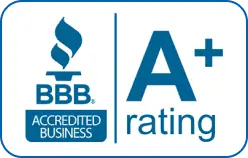When filing taxes, every business looks for as many deductions as possible, and looking to deduct your key man life insurance premiums is no exception.
However, before you write off corporate-owned insurance premiums, you need to fully understand how the IRS is going to treat the deductibility of key man insurance premiums. Additionally, your business needs to be aware of important IRS rules and requirements which became effective with the Pension Protection Act of 2006 with respect to employer-owned life insurance policies.
Key Takeaways of Is Key Man Insurance Deductible As A Business Expense?
-
The IRS prohibits businesses from deducting key man life insurance premiums as a business expense under Section 264(a)(1).
-
While the proceeds from a life insurance policy are typically tax-free to the beneficiary, this is the reason why the IRS does not allow premium deductions.
-
Employer-owned life insurance policies are subject to specific IRS regulations to prevent corporate abuse.
-
Some employer-owned life insurance policies may qualify for tax exemptions, but they must meet certain criteria under IRS guidelines.
-
To ensure compliance with tax regulations and avoid unintended taxation, businesses should seek guidance from a tax professional.
What The IRS Says About Deducting Key Man Insurance Premiums
The federal government and the IRS has, for many years, encouraged both individuals and businesses to purchase life insurance to provide financial security. One of the inducements for purchasing life insurance has been that the death benefits, when paid out, are received by the beneficiary of the policy income tax-free.
States gross income does not include proceeds received from a life insurance policy, if such amounts are paid, as a result of the death of the insured.
Because the proceeds of life insurance policies are generally paid to the named beneficiary tax free, there is no key man insurance deduction allowed for premiums paid.
The IRS covers this in Section 264(a)(1) and provides that there is no deduction allowed for premiums paid on any life insurance policy, or endowment or annuity contract if the taxpayer is directly or indirectly a beneficiary under the policy or contract.
Furthermore, key man insurance and other employer-owned life insurance is specifically covered under Section 1.264-1(a) and states the premiums paid for life insurance on the life of any officer, employee, or person financially interested in a business carried on by the taxpayer are not deductible where the taxpayer is directly or indirectly a beneficiary of the policy.
In short, the IRS prohibits the deducting of key man insurance as an expense.
In addition, due to corporate abuses with key employee insurance, the IRS has added additional guidelines in the Pension Protection Act of 2006 for all employer owned life insurance policies issued after August 17, 2006. The objective of the IRS code change was to prevent large corporations from purchasing life insurance policies on its non-key employees simply to receive a tax free death benefit when the employee or former employee dies.
This is covered under IRC Section 101(j)(1) which states that death benefits from employer-owned life insurance contracts shall be taxable, in excess of premiums paid, unless the employer-owned life insurance contract meets one of the exceptions provided under IRC 101(j)(2).
NOTE: Key man life policies issued prior to August 17, 2006 are grandfathered in and are not subject to these rules.
For more details on the exemptions, see our article explaining key man insurance and taxes.
Play It Smart with Key Man Insurance Taxation
The bottom line: since key person insurance policy proceeds are generally non taxable to the beneficiary, no business should be writing off premiums for life insurance paid on key employee or key executive insurance policies.
Additionally, to avoid potential taxation of death benefits on business-owned life policies issued after August 17, 2006, you need to adhere to the rules and guidelines established under the Pension Protection Act of 2006. For specific corporate-owned life insurance taxable income questions, insurance coverage, key person insurance cost or any other question about key man insurance, a consult with your CPA is strongly recommended
Choose the right type of key person life insurance policy when you build your own plan, and take advantage of the tax benefits where you can.
trusted by 5,000+ clients
Get Personalized Quotes Tailored to Your Company’s Needs
Frequently Asked Questions about Is Life Insurance Tax Deductible?
Is Keyman Insurance Deductible?
No, key insurance is not deductible as a business expense. The IRS explicitly states under Section 264(a)(1) that businesses cannot deduct life insurance premiums if they are the direct or indirect beneficiary of the policy. This rule applies to key man insurance because the company purchases the policy to protect itself from financial loss in the event of the insured individual’s death or disability.
What Type of Insurance is Key Person Insurance?
Key person insurance is a type of life insurance policy that a business takes out on a crucial employee, owner, or executive whose absence would significantly impact the company’s operations. The business owns, pays for, and is the beneficiary of the policy, ensuring financial protection in the event of the insured person’s death or disability.
Which Losses Are Covered Under Keyman Life Insurance Policy?
Keyman insurance provides financial protection against several potential losses resulting from the death or disability of a key employee. The most significant covered loss is the financial impact on business operations, including revenue decline due to the absence of the key individual. The policy can also cover the cost of hiring and training a replacement, ensuring business continuity. Additionally, keyman insurance helps businesses meet outstanding loan obligations that may have been personally guaranteed by the insured.
Conclusion and Summary of Is Key Man Insurance Deductible As A Business Expense?
Key man insurance plays a critical role in protecting businesses from the financial impact of losing a key employee or executive. However, the IRS does not allow businesses to deduct key man insurance premiums as a business expense since the company is a direct or indirect beneficiary of the policy. While death benefits are generally tax-free, employer-owned life insurance policies are subject to additional IRS regulations under the Pension Protection Act to prevent corporate misuse.
Exceptions exist under IRC Section 101(j)(2), but businesses must carefully follow IRS guidelines to avoid unexpected tax liabilities. To ensure compliance and make informed financial decisions, businesses should work closely with a CPA or tax professional when structuring their key person insurance policies.














